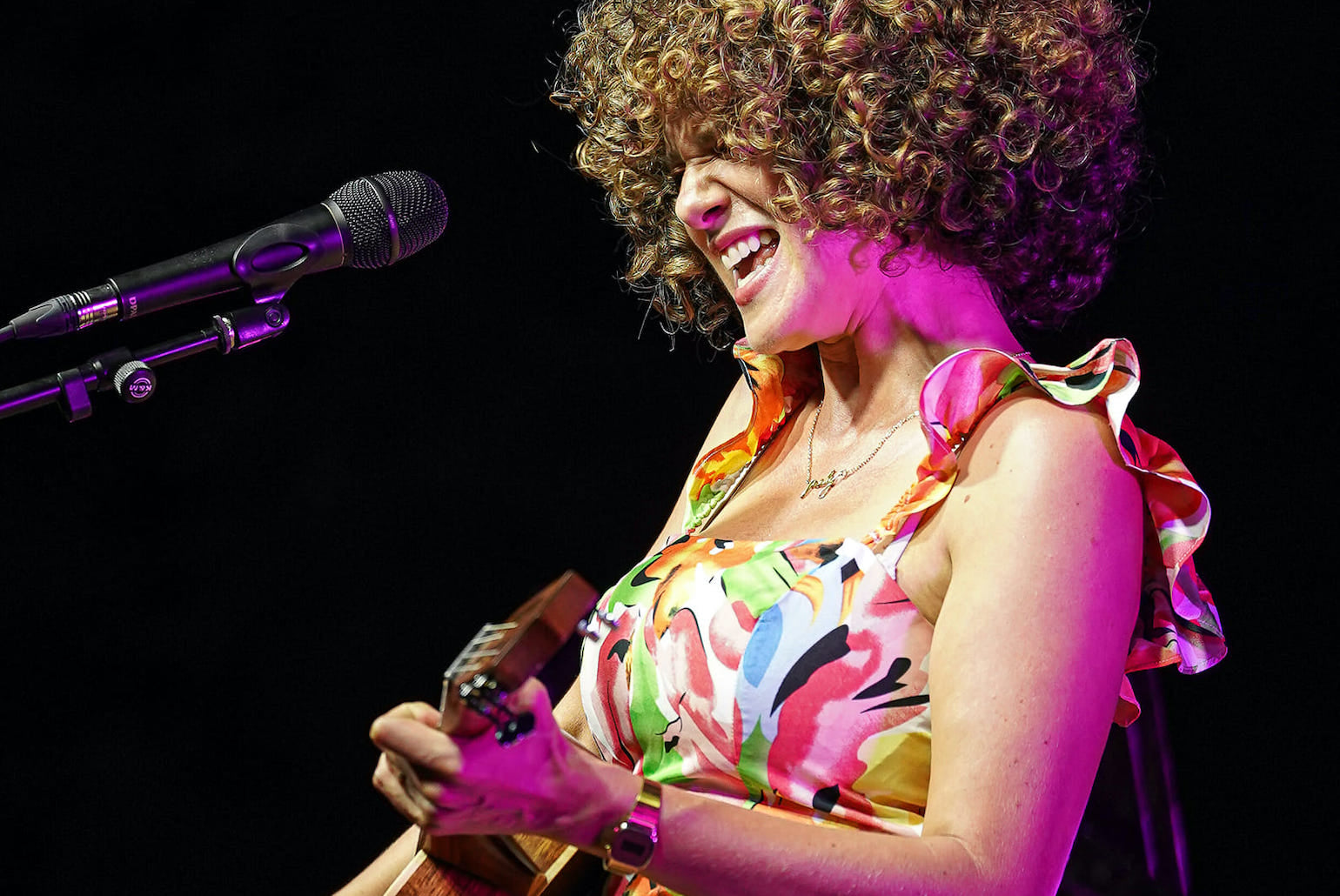
Accompanied by Baritone: Q&A with Cyrille Aimée
With its popularity among musicians growing every year, the baritone ukulele has found its way into the hands of artists across a wide array of genres. For Cyrille Aimée, critically-acclaimed jazz vocalist and Grammy-nominated musician, the baritone ukulele made such an impression that it became the first instrument she herself began regularly taking on-stage for gigs. We had a wonderful opportunity to connect with Cyrille and learn more about her music, tips for improvisation, and how she and the baritone have become so intertwined:
Who were some of your key influences in developing your iconic vocal style?
Ella Fitzgerald was my very first vocal influence. I completely fell in love with her joy and the way she makes everything seem so natural! After that there were many but I would say my top 3 vocal influences were Billie Holiday, Bobby McFerrin, and Buika.
You have performed at some incredible venues around the world. What has been one of the most memorable live performance experiences for you?
I loved performing at the Newport Jazz Festival! Such an iconic place!
Tell us a bit about your connection to the music of Stephen Sondheim!
Growing up in France I was not exposed to musical theater until coming to the United States. A few years back I was hired to perform a Tribute to Sondheim at the NYC Center with the Wynton Marsalis Orchestra. The two female singers were myself and Bernadette Peters... and that was how I was introduced to his music! I fell in love with his lyrics, how you can lose and find yourself in them everytime you sing them...
How did you first discover the baritone ukulele?
It's actually a funny story. I had a regular ukulele collecting dust in the living room, and I decided to take it with me on a trip to the jungle of Costa Rica. While over there I felt really inspired and wrote a few songs on it. When I came back I was excited to perform the songs for an audience and thought it would be a good idea to change the ukulele's strings because they had been on there forever. But when I got new strings on it, and started tuning it, I realized the strings were meant to be tuned higher than how I had them... I had been playing the ukulele a 4th too low, and now I couldn't sing my songs with the correct tuning because it was too high!
My friend did some research for me and figured out that there was an instrument called the baritone ukulele, which would be exactly perfect to sing my songs! And that's how I fell in love with the bari uke!
What has drawn you towards the baritone ukulele for accompaniment rather than an ukulele in the traditional "GCEA" ukulele tuning, like Tenor?
I love the warmth of the sound of the baritone uke as opposed to the traditional ukulele. It's much rounder and darker. Also, it's kind of cool that it's the last 4 strings of the guitar..!
You have a Solid Acacia Baritone; What is the significance of Acacia wood to you personally?
I grew up in a tiny little village south of Paris. In my backyard there was a giant acacia tree that my sister and I would climb all the way to the top. That's where my mom would find us everytime when looking for us!
We're very curious about how the baritone ukulele factors into your creative process. How do you approach arranging & accompaniment for the instrument?
I don't know how to read music, or the name of the chords..but I like to place my fingers on the board and see what happens. I usually find a shape that is comfortable for my hand and listen and then adjust.. Then when I find something I like, I look for another shape that's easy to get to and that sounds good!
What about the ukulele do you feel makes it unique from other instruments utilized in jazz?
It's my first time playing an instrument on stage and it really adds something extra to the show. I am used to playing with incredibly virtuosic jazz musicians, and when we do a uke song, it kind of brings them back to focusing on the groove and that's it. The way I play is very basic and steady, and I love the simplicity of this approach when mixed with the complexities of jazz.
What are some of your recommendations for performers looking to become more comfortable with improvisation?
My very first recommendation is to not burn the steps. Learn to feel comfortable where you are, don't try too hard to come up with original stuff. Just let whatever comes out exist without judging it, and focus on making just that feel good. My second recommendation is to remember that it's all about being in the present moment and learning every time! Just have fun !
What is on the horizon for you creatively that people should know about?
I have been so inspired since I started writing songs on the uke and I am working on a new album with producer Jake Sherman, who is an amazing singer/songwriter himself. This album is like nothing I've ever done before, a sort of birth of the songwriter in me, and I am so proud of it!
Learn more about Cyrille's upcoming tour dates, new releases, and accolades in the jazz community by visiting her website.
